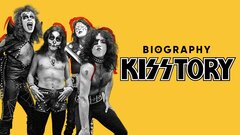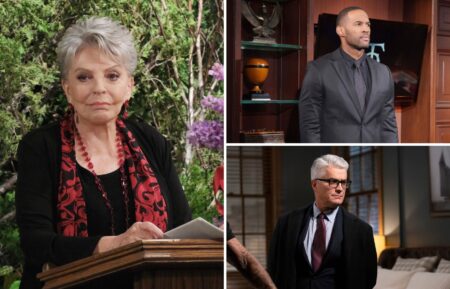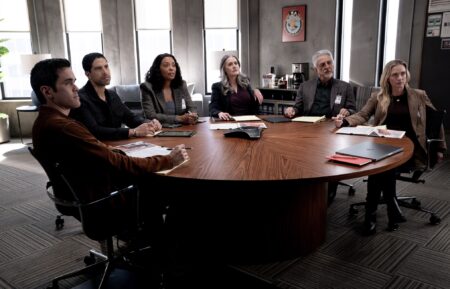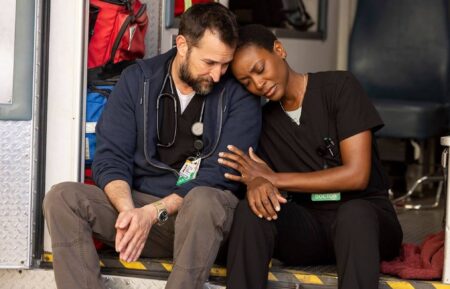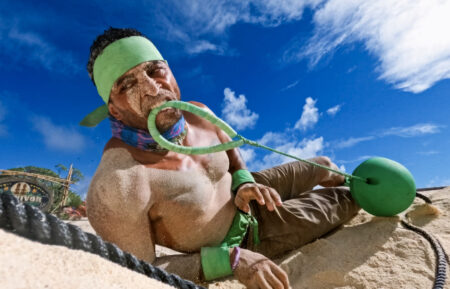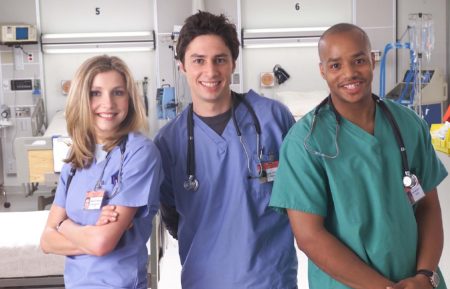‘Biography: KISStory’ Director Sets Stage for A&E Documentary on Band
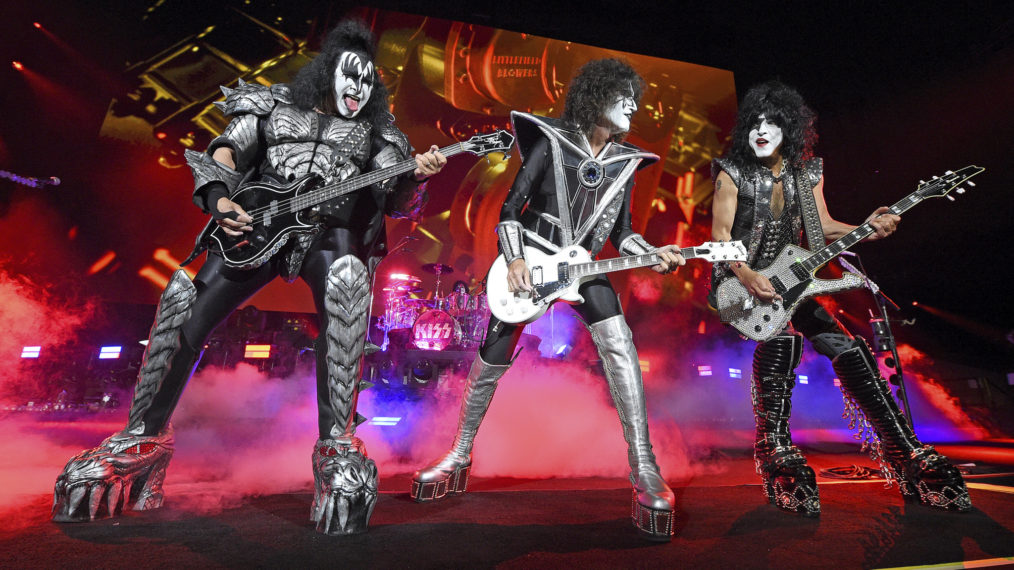
Q&A
The legendary band Kiss has rock and roll-ed all nite for five decades, and A&E is marking the milestone with a party in the form of Biography: KISStory. The two-part documentary digs into the evolution of the face-painted, guitar-wielding icons from their humble beginnings playing New York City gigs in the 1970s to headlining packed stadiums, and the challenges they faced along the way.
Founders Paul Stanley and Gene Simmons join fellow band members Tommy Thayer and Eric Singer and other top names in the industry to reflect on the journey. Director D.J. Viola, who was already friends with Stanley, had his work cut out for him telling Kiss’s expansive story. Here, he gives us a peek behind the curtain before the June 27 and 28 premiere.
What makes this project stand out among the other Kiss docs before it?
D.J. Viola: I’ll lead with the compliment I got from Paul at the Tribeca Film Festival screening. He said, “Nobody has seen my band like this before.” That was one of the greatest compliments I can get. This piece is unique and special because it exposes the heart, personality and what made them tick. I did my best to break up the script. They’ve been asked the same questions and given the same answers—and they’re good answers and entertaining answers—but I think at this point in their careers and their lives, they were far more open in telling their retrospective of their career, but also the introspective to what the journey has been about for them.
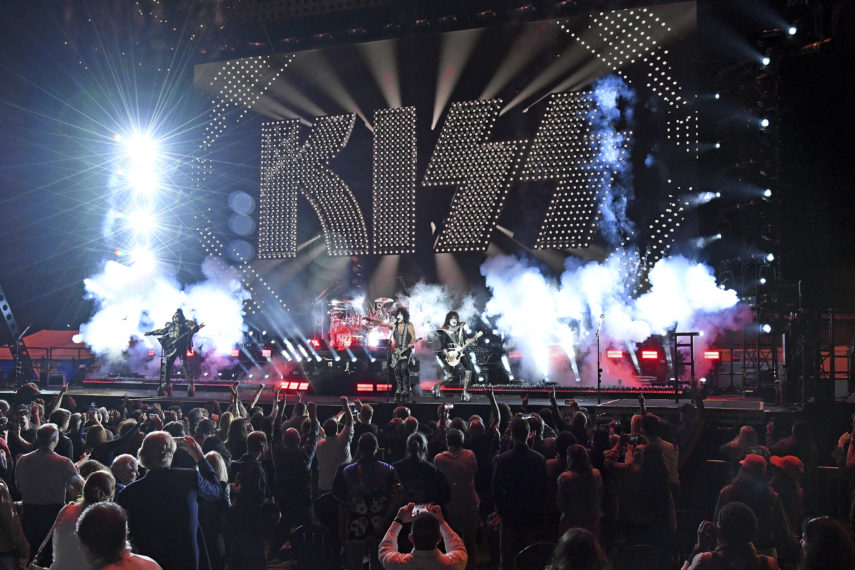
A&E
Was it difficult getting Gene and Paul to open up?
I didn’t know Gene as well. I had to earn more trust there. That was a learning curve. Then he opened up fast. Paul, I had to trust as a friend, but as a storyteller, he was still a little guarded. He is thinking about how this documentary is going to shape together. There was a barrier. Maybe I had to ask a question three times to get that deeper answer.
What was the hardest topic to talk about?
Gene had a great line about [original members] Ace [Frehley] and Peter [Criss]. That they are most difficult to talk about because the fans don’t want to hear it. “If you’re trying to tell our story, I have to tell you the facts of the time. It’s like you’re tired of hearing from your mom that your dad is drunk. It may be a fact but stop it. We love dad.” They didn’t want anything leaning too much on the hardship and not the celebration. You couldn’t have made this band without all four guys. That was particularly important to Gene and Paul and important to have Ace and Peter. They couldn’t continue on without the musicianship of Eric and Tommy. For them, it was like how do I give you an authentic insight on this without just sounding bitter, and with a place of respect and honesty.
Tell me about the approach of splitting the doc up into two parts.
When I first came on the project, we were breaking it down to 90 minutes. As I was breaking down the story, I saw it was not possible. To tell the scope and scale of their story, I would have had no problem with eight hours. It’s 50 years of being in the limelight and album after album with some drama in there. In night one, it’s the origin story. How these guys came out of the streets of New York and came together and what they built with their own blood, sweat and tears to become the band we know and love. By the end of night one, we are showing the demise of what they built. The beauty of night one is you know who they are and how hard they worked to get where they are. Night two has an appropriate balance of when those guys leave the band and come back for the reunion and leave again. We’ve paced it out to when, for example, Tommy enters into the band and worked up the ranks. We organically walk you through the latter part.
I remember visiting the Kiss monument in Cadillac, Michigan where the band famously played at the local high school for the football team. Is that included?
Briefly. There were earlier cuts where that was a big part. What we had to do in the design of this movie, it’s very much like a Kiss album or Kiss show: There are short, punchy chapters inside of acts. You’re going to hear five punchy stories, go to commercial break. Like a Kiss song, four minutes of in-your-face rock and roll and move on to the next chapter. The long tale is experiencing the two-night special. But you’re getting these small, amazing conflict resolutions in here. It was important for me to design a movie as if Kiss made a movie.
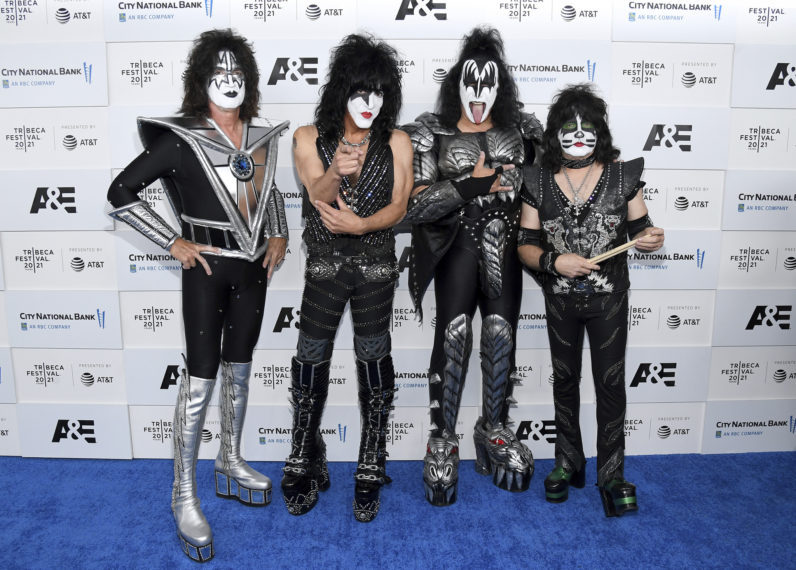
A&E
The people you got to sit down are so impressive. Was there anyone you were particularly excited to get on tape for this?
The challenges were mostly COVID. It is not easy to travel around with a crew and go get an interview with anyone, let alone people who have nice places to live. I would say one of the greatest thrills of this was interviewing Tom Morello and Dave Grohl. Not just because of who they are, but the fanboys they are of Kiss. These guys didn’t give interviews from a place of, “I’m a rock star and this is my peer.” There is not one comment in the long takes with these guys that they weren’t fans of Kiss. They bow to the founding fathers of rock and roll today.
You recently had the Tribecca Film Festival premiere where the band performed a mini concert. What was the night like?
It’s a pressure-filled undertaking. People are wrapped up in this band, as they should be. The screening begins with only terror. You’re outside. Is it going to rain? Once the crowd goes into the movie, it’s a joy. I stopped taking notes. I just sat in and enjoyed it. The guys came out afterward, which for me, it became less about the movie. I was at the Dubai [New Year’s] show, which was epically huge. However, they haven’t played in front of a crowd since the world stopped spinning. To see them in front of this crowd and the joy they had to be with their fans again. They don’t just say it; they are a fan’s band. I felt good about the movie and want the world to see the movie, but to see them come out and perform—you see the legacy they have created.
Biography: KISStory premieres June 27 and 28, 9/8c, A&E

